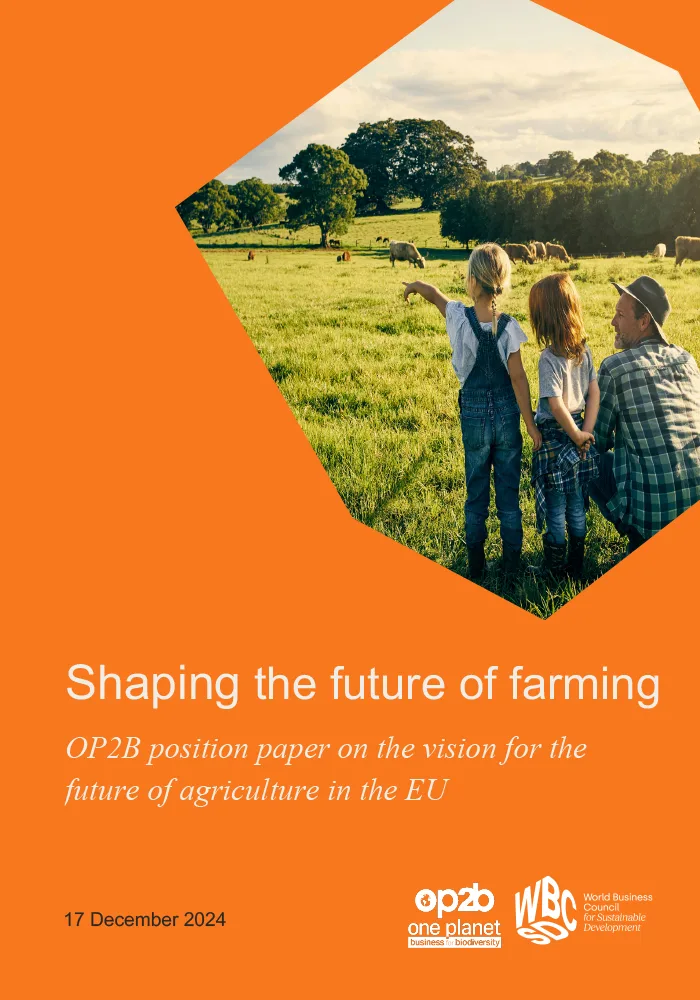Shaping the future of farming

Published
10 January, 2025Type
PublicationThis position paper from One Planet Business for Biodiversity (OP2B) offers advice to policy makers on the vision for the future of agriculture in Europe. It calls for more and better coordination between industry and policy to make regenerative agriculture the norm in Europe.
Regenerative agriculture balances continued agricultural production with measurable net-positive impacts on soil health, biodiversity, climate, water resources and farming livelihoods at both the farm and landscape levels. Regenerative agriculture holds the potential to offer solutions for climate change, water management and biodiversity loss.
In order to limit climate change to 1.5 degrees, regenerative agriculture must expand from covering around 15% of global cropland today to 40% by 2030i. Implementing/Adopting regenerative farming on 40% of the world’s cropland would save around 600 million tons of emissionsi . For Europe, this goal would require 40 million hectares of farmland to adopt regenerative practices by 2030. A clear pathway, supported by collective investments from both public and private sectors, can make this ambitious goal achievable while ensuring economic benefits for farmers and resilience for food systems.
Nature plays a crucial role in agricultural production through the delivery of key ecosystem services including soil productivity, water supply and quality, crop pollination, control of pests and diseases, contributing to nutrient and carbon cycles, and mitigating droughts and floodsii. Many regenerative agricultural practices show synergies between carbon capture and storage and enhancing biodiversity, while not having clear large negative effects on food production, especially in the long termiii. With only 5 harvests left until 2030, there is an urgent need to accelerate the transition to regenerative agriculture by moving beyond pilot projects to large-scale landscape transformations to stay within planetary boundaries.
Collaboration is key to achieve transformation of our agricultural systems into regenerative ones . With nine policy asks, the OP2B-coalition calls upon financial actors, businesses and policymakers to unite in supporting farmers to transition to regenerative agricultural practices:
Nine policy asks to accelerate transition:
- A holistic, performance-based vision on agricultural policy
- Support the development of new business models for ecosystem services
- Improve access to peer-to- peer learning to exchange best practices between farmers
- Foster public-private partnerships to scale up and accelerate the transition to regenerative agriculture and promote collaboration within value chains
- Establish risk-sharing mechanisms and insurance programmes
- Repurpose CAP subsidies to accelerate transition
- Align policy frameworks with internationally recognized standards
- Provide clear and consistent metrics through established guidelines
- Support farmers to transition through improved on-farm data rights and compensation
